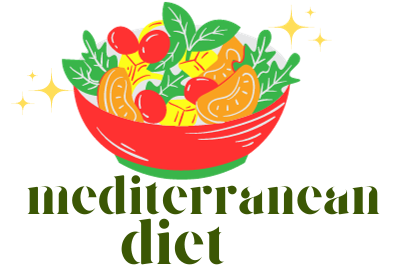Discover expert tips on how to make your favorite recipes more Mediterranean diet-friendly. From ingredient swaps to cooking techniques, learn how to infuse the flavors of the Mediterranean into your meals for a healthier lifestyle.
Table of Contents
Introduction
In a world where health consciousness is on the rise, many individuals are seeking ways to adapt their eating habits to healthier alternatives without sacrificing flavor. One such dietary pattern gaining popularity is the Mediterranean diet, known for its emphasis on fresh fruits, vegetables, whole grains, and lean proteins. If you’re wondering how to align your favorite recipes with the principles of the Mediterranean diet, you’ve come to the right place. This comprehensive guide will walk you through simple yet effective strategies to transform your meals into Mediterranean delights while keeping them delicious and satisfying.
Exploring Mediterranean Flavors
Embracing the Mediterranean diet is more than just a culinary choice; it’s a lifestyle that celebrates wholesome ingredients and mindful eating. By incorporating key elements of this diet into your recipes, you can reap numerous health benefits while tantalizing your taste buds with vibrant flavors. Let’s delve into various ways to infuse your favorite dishes with the essence of the Mediterranean.
Incorporating Fresh Produce
Fresh fruits and vegetables are the cornerstone of the Mediterranean diet, providing an abundance of vitamins, minerals, and antioxidants. Whether it’s succulent tomatoes, crisp cucumbers, or leafy greens, incorporating seasonal produce into your recipes adds a burst of color and nutrition. Experiment with hearty salads, roasted vegetables, or grilled skewers to showcase the natural goodness of these ingredients.
Opting for Healthy Fats
Unlike traditional Western diets high in saturated fats, the Mediterranean diet favors heart-healthy fats such as olive oil, nuts, and avocados. Swap butter for olive oil in cooking, drizzle salads with a lemon vinaigrette, or sprinkle chopped nuts over yogurt for added crunch. These small changes not only enhance flavor but also promote better cardiovascular health.
Choosing Lean Proteins
While meat is not entirely off-limits in the Mediterranean diet, it’s typically consumed in moderation, with an emphasis on leaner options such as fish, poultry, and legumes. Incorporate seafood into your meals by grilling salmon fillets, simmering shellfish in a savory broth, or tossing shrimp with whole-grain pasta and vegetables. For plant-based protein sources, consider adding chickpeas, lentils, or tofu to soups, stews, and salads.
Embracing Whole Grains
Whole grains are a staple of the Mediterranean diet, providing fiber, B vitamins, and essential minerals. Replace refined grains with wholesome alternatives like quinoa, bulgur, or farro to boost the nutritional value of your dishes. From hearty grain bowls to aromatic pilafs, there are endless possibilities for incorporating whole grains into your repertoire.
Infusing Flavor with Herbs and Spices

Herbs and spices are the secret weapons of Mediterranean cuisine, imparting depth and complexity to dishes without excessive salt or fat. Experiment with aromatic herbs like basil, oregano, and thyme, along with spices such as cumin, paprika, and cinnamon, to elevate the flavor profile of your recipes. Whether you’re seasoning grilled meats, sautéed vegetables, or homemade sauces, a sprinkle of herbs and spices can transform ordinary meals into extraordinary culinary experiences
Balancing Portions and Moderation
In addition to specific food choices, the Mediterranean diet emphasizes portion control and mindful eating. Instead of overindulging in large servings, savor smaller portions of nutrient-dense foods, allowing yourself to fully enjoy each bite. By listening to your body’s hunger and fullness cues, you can cultivate a healthier relationship with food while still indulging in your favorite culinary creations.
FAQs (Frequently Asked Questions)
1. Can I still enjoy pasta on the Mediterranean diet?
Absolutely! While traditional pasta may not align perfectly with the Mediterranean diet, you can opt for whole-grain or legume-based pasta varieties for a healthier option. Pair it with plenty of vegetables and lean protein, and drizzle with olive oil for a delicious Mediterranean-inspired meal.
2. Are desserts allowed on the Mediterranean diet?
Yes, desserts can be enjoyed in moderation as part of the Mediterranean diet. Opt for fruit-based desserts like baked apples with cinnamon, Greek yogurt with honey and berries, or dark chocolate with nuts for a sweet treat that aligns with the principles of this dietary pattern.
3. How often should I eat fish on the Mediterranean diet?
Fish is a key component of the Mediterranean diet and should ideally be consumed at least twice a week. Choose fatty fish like salmon, mackerel, or sardines, which are rich in omega-3 fatty acids and offer numerous health benefits for heart and brain health.
4. Can I still enjoy dairy products on the Mediterranean diet?
While dairy products are not as prominent in the Mediterranean diet as in some other dietary patterns, they can still be included in moderation. Opt for low-fat or Greek yogurt, cheese in small amounts, and occasional servings of milk or kefir as part of a balanced diet.
5. Are nuts and seeds a significant part of the Mediterranean diet?
Yes, nuts and seeds are an integral part of the Mediterranean diet, providing healthy fats, protein, and essential nutrients. Incorporate a variety of nuts such as almonds, walnuts, and pistachios into your meals and snacks for added crunch and nutrition.
6. How can I make traditional Mediterranean dishes more accessible?
If you’re new to Mediterranean cuisine, start by familiarizing yourself with staple ingredients and simple cooking techniques. Experiment with Mediterranean-inspired recipes from reputable sources, and don’t be afraid to adapt them to suit your taste preferences and dietary needs.
Conclusion
Transforming your favorite recipes to align with the principles of the Mediterranean diet is a rewarding journey that offers numerous health benefits and culinary delights. By incorporating fresh produce, healthy fats, lean proteins, whole grains, and flavorful herbs and spices into your meals, you can enjoy a delicious and nutritious eating experience that nourishes both body and soul. Remember to embrace moderation, portion control, and mindful eating habits to fully reap the rewards of this wholesome dietary pattern.



